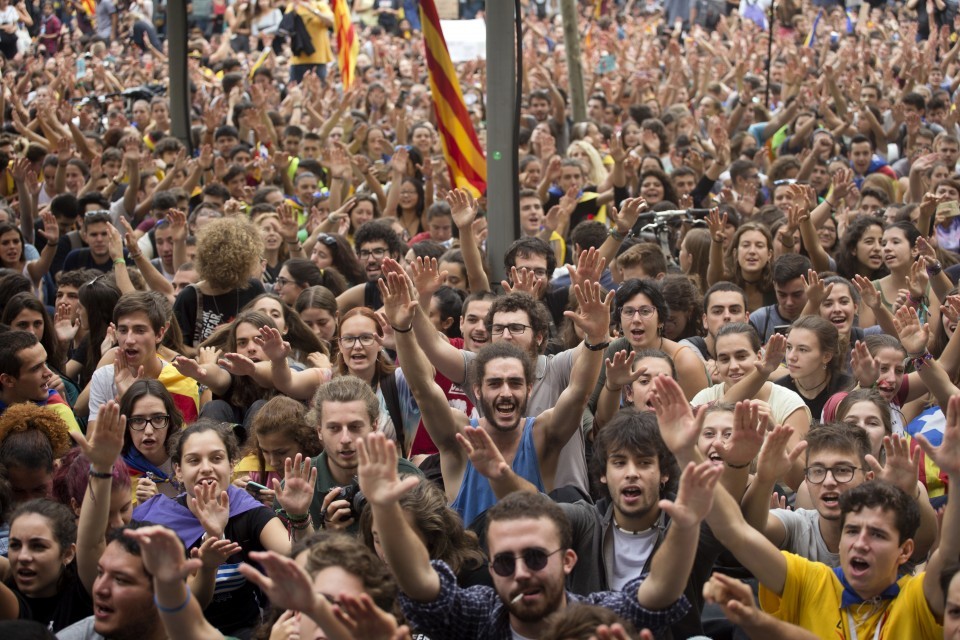Felipe Gonzalez was prime minister of Spain from 1982 to 1996.
MADRID — Spain is a pluralistic country where distinct languages, including Castilian, Basque, Galician and Catalan, are spoken alongside Spanish. But a secessionist movement has arisen in Catalonia, one that threatens to liquidate both the constitution and the statute of autonomy, thereby destroying the existing legality and the legitimacy of the Catalonian government.
This is a seditious break with the democratic legal order. It is perpetrated by politicians with total disregard to the very norms that give them legitimacy and with the sole purpose of imposing their will on all Catalans and all Spaniards. While sentiments of belonging to a unique culture are understandable, I fear we are witnessing the emergence of forces of nationalism similar to those that led Europe into the catastrophes of the first half of the 20th century.
We must be vigilant whenever democracy is put above the law instead of being guaranteed by the law. A situation comparable to this referendum can be found in Venezuela, where President Nicolás Maduro convened an election this year for a National Constituent Assembly as a way to rewrite the constitution and cling to power. Similarly, the intentions laid out by the authorities of Catalonia lack any legal foundation — be it in their own internal legal order, in that of the European Union or even in the realm of international law. This movement to independence is a mockery of democracy. It has created a fault line that will be costly and require a lot of political skill, leadership and resolve to repair.
Spain’s constitution was drawn up by diverse political groups and ratified by a large majority of its citizens. Its political landscape is strongly decentralized. There are so-called autonomous communities, which have their own governments and parliaments and possess a great deal of authority. The rules determining the degree of self-governance are contained in the statutes of autonomy, which were developed in the framework of the Spanish constitution and guarantee the sovereignty, equal rights and obligations of all Spanish citizens, while recognizing the diversity of the people.
Spain endured a difficult period as it attempted to resolve its well-known historic conflicts, the most recent of which was the transition from a dictatorship to a democracy after the death of Gen. Francisco Franco in 1975. But since the constitutional pact in 1978, Spain has experienced a long period of spectacular peaceful coexistence and political freedom.
Within the framework of Spain’s existing institutions, all ideas may be freely expressed and defended. Therefore, no one can object to citizens defending the independence of any territory or, alternatively, to those who may want to put an end to the present political decentralization. However, in this case, the result of a successful Catalan secession — by violating the constitution and the statue of autonomy — would diminish Spaniards’ ability to determine their future.
Like any other democracy in the world, Spain is a state based on laws, with regulations and tools to ensure their respect. It is possible to defend changing the constitution or any statute by the established procedures, but it is neither advisable nor democratic to attempt imposing such a change by ignoring and violating the rules.
This was produced by The WorldPost, which is published by the Berggruen Institute.





